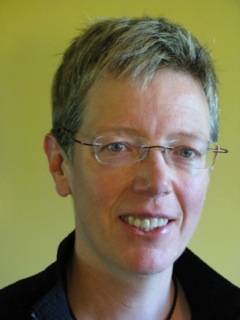Special education is the practice of educating students in a way that addresses their individual differences and needs. Ideally, this process involves the individually planned and systematically monitored arrangement of teaching procedures, adapted equipment and materials, and accessible settings. These interventions are designed to help individuals with special needs achieve a higher level of personal self-sufficiency and success in school and in their community which may not be available if the student were only given access to a typical classroom education.
Lifelong learning is the "ongoing, voluntary, and self-motivated" pursuit of knowledge for either personal or professional reasons. Therefore, it not only enhances social inclusion, active citizenship, and personal development, but also self-sustainability, as well as competitiveness and employability.

Mainstreaming, in the context of education, is the practice of placing students with special education services in a general education classroom during specific time periods based on their skills. To clarify, this means students who are a part of the special education classroom will join the regular education classroom at certain times which are fitting for the special education student. These students may attend art or physical education in the regular education classrooms. Sometimes these students will attend math and science in a self-contained special education classroom, but attend English in a general education classroom. Schools that practice mainstreaming believe that students with special needs who cannot function in a general education classroom to a certain extent belong in the special education environment.
Inclusion in education refers to a model wherein special needs students spend most or all of their time with non-special needs students. It arise in the context of special education with an individualized education program or 504 plan, and is built on the notion that it is more effective for students with special needs to have said mixed experience for them to be more successful in social interactions leading to further success in life. Inclusion rejects but still provides the use of special schools or classrooms to separate students with disabilities from students without disabilities. Schools with inclusive classrooms do not believe in separate classrooms. They do not have their own separate world so they have to learn how to operate with students while being less focused on by teachers due to a higher student to teacher ratio.
Special education programs in the United States did not always exist. "The idea of excluding students with any disability from public school education can be traced back to 1893, when the Massachusetts Supreme Court expelled a student merely due to poor academic ability". This exclusion would be the basis of education for all individuals with special needs for years to come. In 1954, Brown v. Board of Education sparked the belief that the right to a public education applies to all individuals regardless of race, gender, or disability. Finally, special education programs in the United States were made mandatory in 1975 when the United States Congress passed the Education for All Handicapped Children Act (EAHCA) "(sometimes referred to using the acronyms EAHCA or EHA, or Public Law 94-142) was enacted by the United States Congress in 1975, in response to discriminatory treatment by public educational agencies against students with disabilities." The EAHCA was later modified to strengthen protections to students with disabilities and renamed the Individuals with Disabilities Education Act (IDEA). IDEA requires states to provide special education and related services consistent with federal standards as a condition of receiving federal funds.
In the U.S. the Individuals with Disabilities Education Act (IDEA) is a special education law that mandates regulation for students with disabilities to protect their rights as students and the rights of their parents. the IDEA requires that all students receive a Free and Appropriate Public Education (FAPE), and that these students should be educated in the least restrictive environment (LRE). The least restrictive environment states that students with disabilities should be educated with students without disabilities to the maximum appropriate extent. If a student requires supplementary aids and services necessary to achieve educational goals while being placed in a classroom with students without disabilities, they should be provided as needed.

The International Lesbian, Gay, Bisexual, Transgender, Queer & Intersex Youth and Student Organisation (IGLYO) is an international LGBTQI organisation that was created in 1984 as a reaction to the need for better cooperation among regional, local and national LGBTQI youth and student organisations.

Inclusion is a term used by people with disabilities and other disability rights advocates for the idea that all people should take action to freely accommodate people with a physical, mental, cognitive, and or developmental disability. For example, providing ramps and accessible toilets in meeting facilities or providing additional intervention and resources in the education system are known as 'universal design' or efforts towards the goal of inclusion. The education system has a more specific definition for disability. An individual who exhibits challenges that substantially limits one or more major life activities is disabled. The interpretation of what is considered a major life activity has been recently expanded to include all barriers to reading, writing, concentrating, and thinking. For example, individuals with Attention deficit hyperactivity disorder, are now included as a disability in the education system. This allows educational resources to be used for a wider population of individuals with barriers to learning.
ESPA College is part of Education & Services for People with Autism in Ashbrooke, Sunderland, Tyne and Wear, England. The college provides various services for people on the autistic spectrum. The college management team is located in the same buildings as the students. It educates young people aged 16–25. It was recognised in a 2010 OFSTED report as having good overall effectiveness.
Special educational needs (SEN), also known as special educational needs and disabilities (SEND) in the United Kingdom refers to the education of children with disabilities.
The Knowledge and Human Development Authority (KHDA) is the educational quality assurance and regulatory authority of the Government of Dubai, United Arab Emirates. It oversees the private education sector in Dubai, including early childhood education centres, schools, higher education providers, and training institutes. KHDA is responsible for the growth and quality of private education in Dubai.
The Circle of Friends approach is a method designed to increase the socialization and inclusion of a disabled person with their peers. A Circle of Friends consists of a "focus" child, for whom the group was established, six to eight classroom peers, and an adult facilitator who meet once weekly to socialize and work on specific goals. Most available resources about the Circle of Friends approach are geared toward its use with school-aged children with various difficulties.

Equal Education (EE) was founded in February 2008. EE is a community and membership-based movement who is striving for quality and equality in the South African education system, through campaigns based on research and policy analysis.

Mithu Alur usually referred to as Dr. Mithu Alur, is the founder chairperson of The Spastic Society of India - now rechristened ADAPT - Able Disable All People Together, educator, disability rights activist, researcher, writer and published author on issues concerning people with disability in India.
Deaf Education in Kenya is a constantly changing section of the Kenyan education system that is focused on educating deaf, hard-of-hearing, and hearing-impaired Kenyan students. There are many organizations in Kenya made to protect the rights of Deaf Kenyans and promote progress in deaf education. The state of Kenyan deaf education is constantly changing and improving.
The European Agency for Special Needs and Inclusive Education is an independent organisation that acts as a platform for collaboration for its 31 member countries, working towards ensuring more inclusive education systems. The Agency's mission is to help member countries improve the quality and effectiveness of their inclusive provision for all learners.

Jutta Treviranus is a full Professor at the Ontario College of Art and Design University (OCADU) in Toronto, Canada. She is the Director and Founder of the Inclusive Design Research Centre (IDRC) and the Inclusive Design Institute (IDI).
Inclusive education in Latin America aims at giving all people of the region the right to access education. Its development consists of four aspects that may define the position of the debate on inclusive education in the region:
- Combining traditional programmes with new approaches
- Focusing in and beyond the education system
- Educational progressivism
- Understanding the past and the present
An inclusive classroom is a term used within American pedagogy to describe a classroom in which all students, irrespective of their abilities or skills, are welcomed holistically. It is built on the notion that being in a non-segregated classroom will better prepare special-needs students for later life. In the United States, the Rehabilitation Act of 1973 guaranteed civil rights to disabled people, though inclusion of disabled students progressed slowly until the No Child Left Behind Act of 2001, after which almost half of US students with disabilities were soon in general classrooms.
Education for Justice is the process of promoting a culture of lawfulness through educational activities at all levels. Education for Justice aims at teaching the next generation about crime prevention, and to better understand and address problems that can undermine the rule of law. It promotes peace and encourages students to actively engage in their communities and future professions. Education for Justice is a basic legal knowledge, in which educational activities at all levels seek to promote understanding of crime prevention, peace, justice, human rights, and problems that can undermine the rule of law. Education reportedly plays a key role in transmitting and sustaining socio-cultural norms and ensuring their continued evolution. As such, governments may seek to strengthen this promotion of a culture of lawfulness through education.





